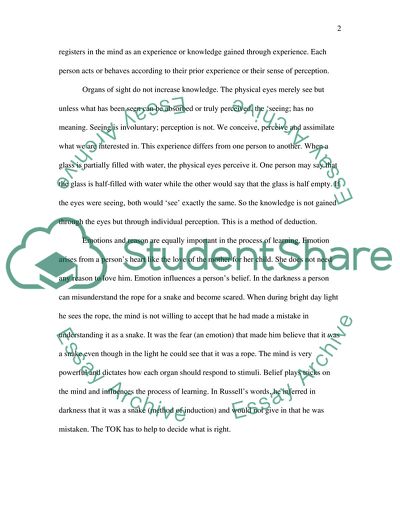Cite this document
(“Learning the Theory of Knowledge Essay Example | Topics and Well Written Essays - 1000 words”, n.d.)
Learning the Theory of Knowledge Essay Example | Topics and Well Written Essays - 1000 words. Retrieved from https://studentshare.org/people/1546272-tok-essay-is-there-a-difference-in-the-way-we-seek-the-truth-in-different-areas-of-study-if-so-which-and-why
Learning the Theory of Knowledge Essay Example | Topics and Well Written Essays - 1000 words. Retrieved from https://studentshare.org/people/1546272-tok-essay-is-there-a-difference-in-the-way-we-seek-the-truth-in-different-areas-of-study-if-so-which-and-why
(Learning the Theory of Knowledge Essay Example | Topics and Well Written Essays - 1000 Words)
Learning the Theory of Knowledge Essay Example | Topics and Well Written Essays - 1000 Words. https://studentshare.org/people/1546272-tok-essay-is-there-a-difference-in-the-way-we-seek-the-truth-in-different-areas-of-study-if-so-which-and-why.
Learning the Theory of Knowledge Essay Example | Topics and Well Written Essays - 1000 Words. https://studentshare.org/people/1546272-tok-essay-is-there-a-difference-in-the-way-we-seek-the-truth-in-different-areas-of-study-if-so-which-and-why.
“Learning the Theory of Knowledge Essay Example | Topics and Well Written Essays - 1000 Words”, n.d. https://studentshare.org/people/1546272-tok-essay-is-there-a-difference-in-the-way-we-seek-the-truth-in-different-areas-of-study-if-so-which-and-why.


